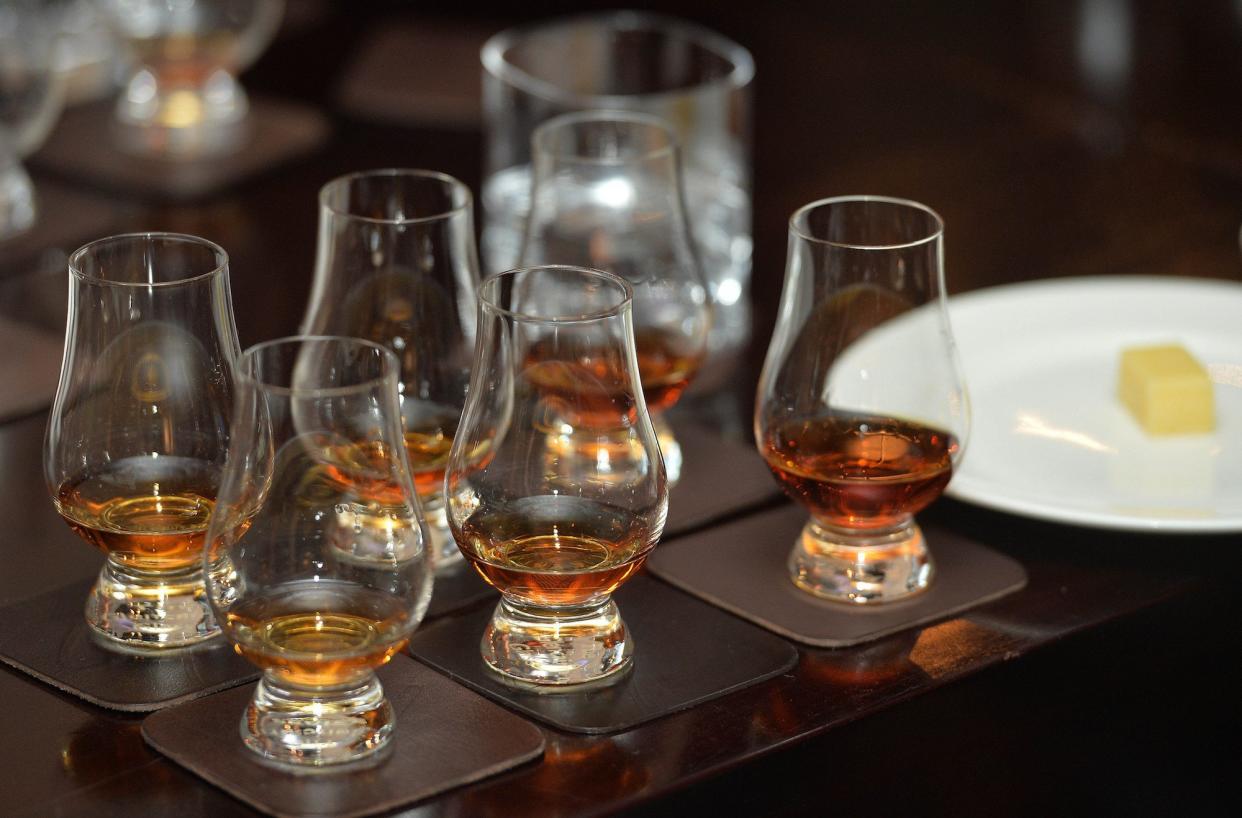This is the difference between scotch, bourbon, and rye

Chris Ricco / Shutterstock
The difference between scotch, bourbon, and rye is down to where the whisky — or whiskey — is made.
The "mash bill" — list of ingredients — also plays a part.
There's a lot to know when it comes to drinking whisky — particularly if you're taking part in Burns Night, which takes place on Wednesday January 25 to commemorate the death of Scottish poet Robert Burns with lots of haggis and booze.
Whether it's deciding whether or not to have ice, what brand to buy, or simply knowing the difference between whisky and whiskey, there's a lot behind enjoying a glass of scotch, bourbon, or rye.
Business Insider spoke to Ewan Gunn, whisky master for the global drinks giant Diageo, which produces mass-market brands like Johnnie Walker and Haig Club.
We asked Gunn — who has 19 years' experience in the industry — to answer a simple question about a complicated nectar: What's the difference between scotch, bourbon, and rye?
Scotch by name, Scottish by nature
"Scotch whisky can only be made in Scotland," Gunn said. "You cannot make it anywhere else in the world."
He added: "One of the most beautiful things about scotch is it is tightly regulated and the most trusted. [There are] rules governing how you can and cannot make and sell scotch whisky — they're really rigorous.
Another whiskey expert, Tommy Tardie, owner and operator of Fine & Rare and The Flatiron Room, who spoke to Business Insider in January, added that it's no different to Champagne.
"If you're a Cognac, you have to be made in the Cognac region. If you're a Champagne, you have to be made in the Champagne region. It's no different for scotch," he said.

Diageo
Bourbon in the USA
Bourbon and rye, meanwhile, are native American spirits.
Aside from the point of origin, what differentiates variants of whiskey — or whisky — is the "mash bill," or list of ingredients used to make it, according to Tardie.
"To be a bourbon, in America you have to be using 51% or more corn, [and] the rest of the mash bill is traditionally rye and malted barley," he said.
"To be a rye whiskey, you have to use 51% or more rye, and then the rest is usually corn and malted barley. In addition, both have to be aged in brand new American oak barrels."
While there's no set time period they have to spend in the barrel, to "call yourself a straight whiskey, you have to be aged a minimum of two years," Tardie said.
If it still seems confusing, Tardie said you should think of whiskey as a category, or "big umbrella," and underneath this umbrella, stands all of its variants. "In other words, all bourbon is whiskey but not all whiskey is bourbon," he said.

Diageo
While they all have their own unique properties, Gunn believes that "no other spirit or whiskey offers the same range [as scotch.]"
Diageo alone has 28 single-malt scotch whisky distilleries, and there are over 100 within the industry, according to Gunn.
Single-malt scotch whisky is made at a single distillery, exclusively from malted barley, and must be aged for at least three years in oak casks. Some American single-malt whiskeys are produced from malted rye rather than malted barley.
"We make scotch whiskies that are light, delicate, and sweet to robust, powerful, smokey, and intense," he said. "No other whiskey really offers that diversity scotch whisky can offer."
See Also:
SEE ALSO: The 3 mistakes people make when buying, ordering, and drinking whisky — and what to do instead

 Yahoo News
Yahoo News 

